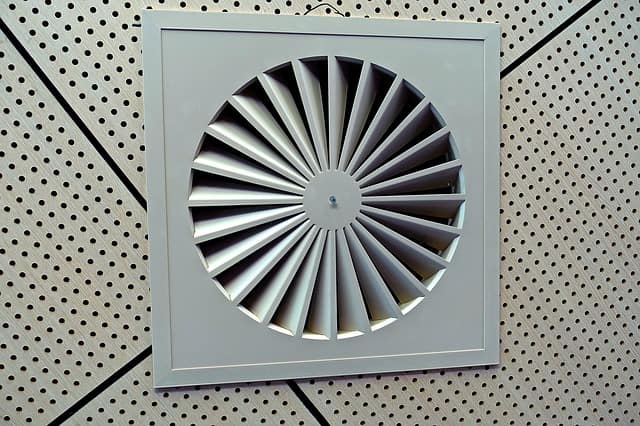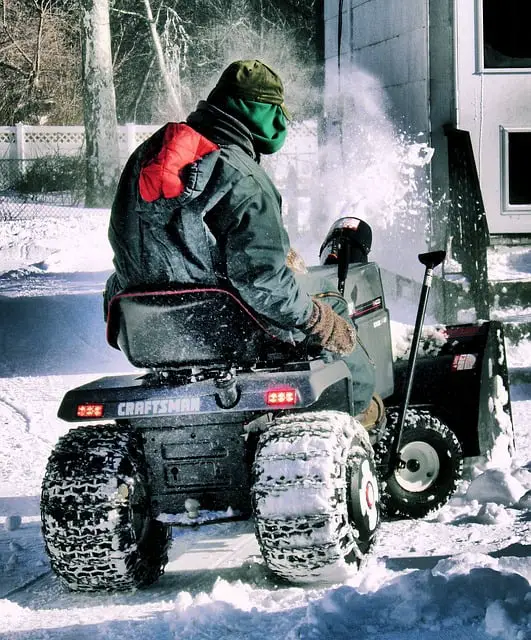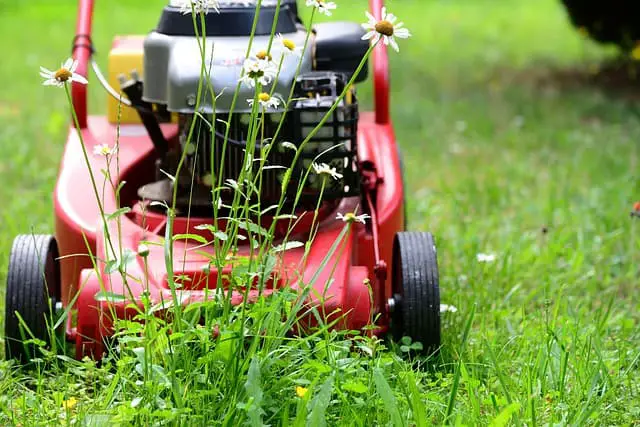The difference between a snowblower and a snow thrower is the engine stage. Snow throwers are often single-stage machines, whereas snowblowers are two-stage or more machines. The two-stage design of a snowblower makes it much stronger and better suited for heavy snow conditions than a snow thrower.
In the rest of this article, we are going to learn more about snowblowers, snow throwers, and their differences. Keep reading if you are interested in learning about this topic.
What are the differences between a snowblower and a snow thrower?
As we learned above, the main difference between a snowblower and a snow thrower is its stage. Because snow throwers only have a single-stage engine, they are better suited for light snow, whereas the two-stage engine of the snowblower makes it better for icy conditions or a lot of deep snow.
There are other differences between a snowblower and a snow thrower too. For starters, snow throwers are much smaller because of their single-stage design. Snowblowers are a lot larger and can blow snow upwards of 50 feet with pretty great accuracy. Snowblowers are also more expensive than snow throwers.
Which is better snow thrower or snowblower?
Based on snow moving power alone, snowblowers are better than snow throwers. However, that is not to say that everyone should get a snowblower. Based on your individual needs, a snow thrower may be more ideal for you than a snowblower.
Are snowblowers or snow throwers stronger?
Snowblowers are stronger than snow throwers because they have a two-stage engine. This two-stage engine allows the auger to scoop up the snow on the ground for the first stage. For the second stage, the snow is fed through an impeller and blown out a shoot. In many ways, the impeller operates like a fan, hence the name of the snowblower.
Can a snowblower throw wet snow?
Because of the two and sometimes three-stage engine on a snowblower, snowblowers can handle wet snow. That being said, they won’t be as effective on wet snow as powdery snow, and the wet snow may cause the snowblower to clog if used for a long period of time.
However, snowblowers are the best option if you anticipate wet snow. Snow throwers will not be able to handle wet snow because of their single-stage engine.
Can you use a snowblower on ice?
The situation of ice is very similar to the situation of wet snow when using a snowblower. Snowblowers can handle icy conditions, but they’re much more effective on powdery snow. If you expect to get ice frequently, you certainly need a snowblower, and one with a three-stage engine will be best.
If you know you will get a lot of ice, you must get a snowblower. A snow thrower will absolutely not be able to handle ice. Snowblowers with two or three-stages at the minimum are the only ones that can handle icy conditions.
How much snow can a snowblower handle?
The amount of snow a snowblower can handle depends on a variety of situations, including the stage. Single-stage and two-stage snowblowers are designed to handle 12 inches, but single-stage snowblowers may not handle this much. Three-stage snowblowers are designed for 16 inches instead.
How deep should snow be to be use a snowblower?
If you are using a two or three-stage snowblower, you want the snow to be deep enough that you aren’t wasting your time or money. Whenever the snow is about 6 inches or more, that is the best time to use a snowblower.
If the snow is not yet 6 inches, it is likely better to opt for a snow thrower or the traditional shovel method. That’s because a snowblower will likely be too effective for the amount of snow on the ground.
How much snow can a snow thrower handle?
The amount of snow snow throwers can handle depends on the brand. The most effective snow throwers can typically only handle snow that is 9 inches deep, but some snow throwers can only handle snow that is 6 inches deep. As a result, you need to read the specifications of every specific snow thrower before purchase to know how much snow it can handle.
Should I get a snowblower or a snow thrower?
Whether you should get a snowblower or a snow thrower depends primarily on your intended uses and the type of snow you anticipate.
If you don’t get snow frequently and the snow is never too deep or too icy, you should get a snow thrower. A snow thrower will be cheaper and smaller while still offering enough power to move the snow you anticipate falling.
In comparison, you should get a snowblower if you live in an area where it snows frequently. The snowblower will be more expensive and larger, but it will be more effective for moving the large amounts of snow you expect to fall in your area.
Is a snow thrower worth it?
A snow thrower is worth it only if you don’t get a lot of snow. For example, it’s a good choice for individuals who only get real snow a couple of times a year.
However, it is not worth it for individuals who expect to use their snow-moving machine on a regular basis for thick, icy, or wet snow.
Is a 2 stage snowblower worth it?
Much like a snow thrower, a two-stage snowblower is only worth it if your conditions call for this sort of snowblower. two-stage snowblowers are worth it for individuals who know they will get a lot of snow and need to use their snowblower frequently.
In contrast, a snowblower with a two-stage engine will not be worth it if you don’t get a lot of snow since it will be too expensive and large for your needs.
Can a snowblower be used on grass?
Although snowblowers are mainly designed for removing snow from driveways and other similar surfaces, you can use them to remove snow on grass too. Removing snow from grass does not change the effectiveness of the snowblower.
Hi, I’m John Stephens, chief editor and writer for Totalgardener.com. I’ve been gardening and raising animals for over 15 years starting with a small backyard plot in Northern Virginia where I grew corn, potatoes, squash, and using a high mulch technique called the Ruth Stout Method. I also raised ducks and small mammals for meat and eggs in a movable pen similar to the ones used by Joel Salatin. I later moved to Colorado where I experimented with growing greens using aquaponics inside. I eventually added a microgreens setup and home sprouting operation. I’m excited to share everything I’ve learned plus more from the other local gardening and animal raising experts I know.



